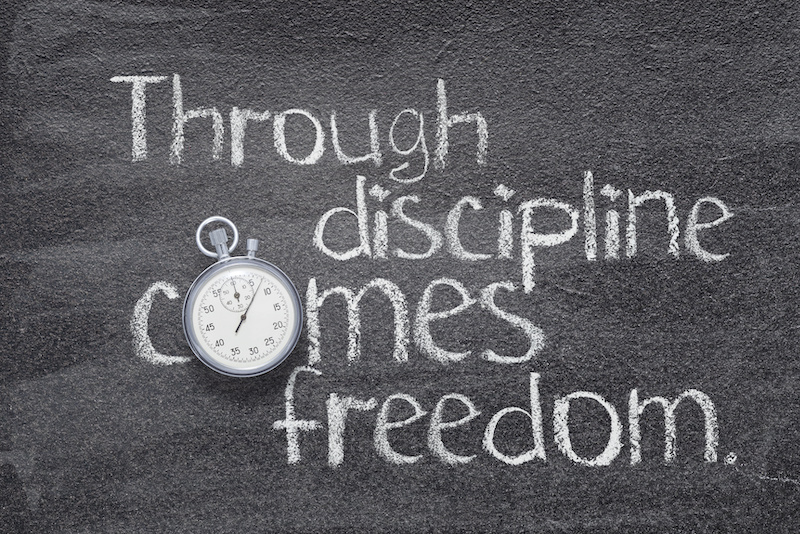Coping With Childhood Emotional Neglect: Thanksgiving Survival Tips

Childhood Emotional Neglect or CEN has a way of making family holidays like Thanksgiving, which should feel welcoming, loving and warm, fall short.
It’s the invisible force that just slightly subdues the welcome, cools the warmth, and quashes the love. It’s the background of your family picture which no one sees. It’s the gray fog that lingers round the family, making it impossible to truly see each other.
The members of an emotionally neglectful family walk through each and every holiday with a vague feeling of disappointment and discontent.
Childhood Emotional Neglect (CEN) happens when you grow up in a family that does not “see” the emotions of its members. In the CEN family, feelings are treated as if they are irrelevant or even burdensome. Children in these families learn to ignore and hide their own feelings.
If this is your family, how do you take care of yourself so that you can enjoy Thanksgiving?
5 CEN Tips for Thanksgiving
- Have a support person: Make sure that you have one person with you who understands Childhood Emotional Neglect, and knows what you have been through. A spouse, sibling or trusted friend can give you great strength at the moments you need it most. Meeting your support person’s understanding eyes across the room is validating and grounding.
- Keep your expectations realistic: Our human brains are naturally wired to expect nurturance and care from our families of origin. But in the emotionally neglectful family, if you let yourself fully embrace those expectations, you can be left feeling twice as empty. Try to adjust your expectations before you go, so that you’ll be ready. It’s better to be pleasantly surprised than disappointed.
- Be aware of your feelings: During the course of the day, you may experience a variety of different emotions, like frustration, emptiness, boredom, anger or disappointment to name a few. Pay attention to these feelings as they arise. Accept and name them, and let yourself have them. You are feeling those emotions for a reason, and you can use them later to help you understand how your family affects you.
- Be thankful for your strength: Growing up with Emotional Neglect has made you uncommonly strong. As an emotionally neglected person, you have learned to rely on yourself. On this day, focus on the gifts your family has given you, and the positives that have come from growing up as you did. Whether you realize it or not, your Childhood Emotional Neglect taught you how to be independent, capable, and giving. These are things to be thankful for.
- Especially focus on self-care: Get some exercise, wear clothes you feel comfortable and good in. Stay at your Thanksgiving family gathering only as long as you are OK, and not one minute longer. This is a day when it’s extra important to put yourself first.
Emotional Neglect passes through the generations unseen and unnoticed. Most likely your parents have raised you very much the same as they were raised themselves.
For your healing, it’s important to acknowledge everything you didn’t get from your family. On this day, work on accepting what you didn’t get, what you did get, and why. And realize that your parents cannot give you what they do not have themselves.
Remind yourself that everything you got, and everything you didn’t get: It all adds up to who you are now.
And you’re all right.
Childhood Emotional Neglect is invisible and unmemorable, so it can be difficult to know if you have it. To find out Take the Emotional Neglect Test. It’s free.
To learn much more about Emotional Neglect, how it happens how it affects you, see EmotionalNeglect.com and the book, Running on Empty.
A version of this post was originally published on psychcentral.com. It has been reproduced here with the permission of psychcentral.
Parents: 10 Steps to Connect With Your Adult Child

The world is full of mothers who are wondering why their adult sons don’t answer their calls, and fathers who struggle awkwardly to talk to their daughters.
“What did I do wrong?” they ask. “Why can’t we be closer? Shouldn’t our relationship be easier now?”
It’s entirely possible to be a loving, caring parent who worked hard to do everything right in raising your child and to still end up with a strained relationship once your child grows up. It’s because parenting is so complex and multi-layered that it’s far too easy to make one crucial error that your child has difficulty either understanding or recovering from.
One of the easiest and most invisible errors that a parent can make – Childhood Emotional Neglect (CEN) – passes silently from one generation to the next, unnoticed and unchecked. And unfortunately, it also can lead to some of the greatest parent/child emotional gaps once the child grows up.
Sadly, it’s all too easy to make this mistake. All you have to do is fail to respond enough to your child’s emotional needs when you are raising her. This leaves your child, as a grown-up, without enough access to her emotions. It also leaves her feeling as if you don’t really know her on the most deeply personal level: the emotional level.
So she may then come to you for advice, but not for solace. She may expect you to be there for her financially, but not emotionally. She may share her thoughts with you, but not so much her feelings.
One of the most common questions I receive from readers of this blog is from parents who have realized that they inadvertently, through no fault of their own, emotionally neglected their child. This is a painful realization for any parent, and it’s extra painful when your adult child keeps her distance from you, seems angry at you, or is struggling with issues of her own.
Please know that no matter what’s gone wrong between you and your adult child, the burden generally lies on you, the parent, to initiate fixing it. So what do you do if you want to repair or deepen your relationship with your CEN adult child? The good news is that there are clear steps that you can follow.
Four Guiding Principles to Keep in Mind Before You Start
- It’s your job to initiate the fix but your child must then meet you halfway in working through it.
- In your own mind, take blame and guilt out of it. All parents make mistakes. What you did was the best you could do at the time. You’ll be able to remedy this far better if you don’t blame yourself or your child, and instead focus on understanding and moving forward.
- The key is to listen to your child in a different way than you ever have, and with a completely open mind. Your job: listen for his feelings, and then validate them.
- Be aware of an easy mistake to make: taking too much responsibility for your adult child’s struggles. It’s important to walk the line between acknowledging your mistakes while also making sure your child understands that as an adult, he must be the one to resolve the effects of CEN within himself and within his own life. You cannot do it for him and you should not try.
10 Steps to Get Closer to Your Adult CEN Child
- Tell your child that you’d like to talk with him about something important, and ask him when is a good time. This will help him know that this really matters to you even before you talk about it.
- Start the conversation by saying, “I feel like we’re distant from each other. I want to be closer to you, and I want to fix what’s wrong, or missing.”
- Ask him if he feels it too. He may say no, in which case you should not be discouraged. Acknowledge his perception, but if he’ll allow it, continue to express yours.
- Talk with your child about your discovery of how Emotional Neglect happens; how invisible it is, and how it can separate a child from his feelings and persist into adulthood causing problems.
- If your child seems resistant to discussing it, then try to talk about yourself more than him. Chances are excellent that you were emotionally neglected yourself as a child (because we all naturally parent our children the way we ourselves were parented). Explain how it happened to you and how it’s affected you in your life.
- If your child acknowledges a problem, ask him what’s wrong from his perspective, and then truly listen.
- Validate, validate, validate. Do this by hearing him and acknowledging his feelings, whatever they are. Acknowledging does not require agreement; it involves only understanding.
- Ask your child what you can do differently for him. As long as his request is healthy for both of you and does not involve you fixing his life for him, then try your hardest to deliver it.
- Don’t expect your first talk about this to resolve matters. You may need to have multiple conversations.
- Keep trying. Don’t give up, even if your child resists or continues to be distant. Much can be gained from persistence.
To learn more about Childhood Emotional Neglect, how it transfers from one generation to the next, and how it affects children once they grow up, see the book, Running on Empty. For many more specific tips and information about improving your relationship with your child see the book Running On Empty No More: Transform Your Relationships.
A version of this article was originally posted on psychentral. It has been republished here with the permission of psychcentral.
7 Ways to Face Your Grief and Move Forward

Jared has done everything he can think of to make himself feel better since his father unexpectedly passed away two years ago. But he still feels blah and numb much of the time.
Sandra keeps choosing the same kind of guy over and over; alcoholic, angry, and afraid of commitment.
Claudia is irritable and bitter after her painful divorce. She can’t seem to get back to her old self.
All three of these people are stuck in some way. Each is suffering, each is confused. “Why can’t I get out of this?” they all wonder.
Fortunately for Jared, Sandra and Claudia, there is an answer, and it is the same for each of them. It’s a simple answer, yet it requires them to do something they dread.
Grieve.
Grief gets a bad rap, and in some ways, it should. After all, when does it enter our lives? When we’ve lost someone, or something, important. Grief only appears at times of pain and loss. But grief itself is not pain or loss. Instead, it’s a phase of processing pain and loss.
It’s a very natural human tendency to want to avoid pain. And it takes time to process a loss. This is what makes grieving so universally difficult. The three people described above are all stuck because they are avoiding their grief.
Jared is working hard, but to some extent on the wrong things. He’s trying to make himself feel better. But unfortunately, no amount of sporting events, dates, or successful work projects will help him process his loss and pain. He can only really move past his grief phase by going through it, not around it. This means he must accept his loss and sadness. Jared must allow himself to grieve.
Sandra wants to have the kind of healthy relationship that she sees others enjoy. So she keeps trying, over and over and over. Why does she keep repeating the same pattern? Because she has never grieved the father who left when she was 8 years old. “I don’t care about that jerk,” she’s said all of her life. Sandra is protecting herself with anger, because she doesn’t want to face, or feel, the pain of being abandoned by the man who was supposed to love her the most. Because Sandra isn’t allowing herself to feel, process, and work through her loss, she keeps recreating it. She keeps choosing men who will not really be there for her, and who will eventually abandon her.
Claudia was deeply hurt by her divorce from the man she was married to for 12 years, the father of her children. She was shocked and bereft when he signed those divorce papers. To cope, she has placed her focus on her children and making sure they have a life as close to normal as possible. Surely no one could fault her for this. But what keeps Claudia stuck in her bitterness and anger is not her focus on her children; it’s her failure to focus on herself. She needs to accept, feel, and work through her shock and pain and loss. She needs to grieve.
With all this talk of grief, here’s the good news. If you, like Jared, Sandra or Claudia, feel stuck, you may not actually be. You’re not facing a brick wall after all. You may, instead, be facing a phase. A phase that you can work through, and come out the other side. Yes, you know the solution. You need to grieve.
Seven Tips For Healthy Grieving
- Make an effort to think about who, or what, you’ve lost. This is a way to give yourself a chance to deal with your loss. Choosing to think about your loss is a way to prevent your brain from processing the loss at times when you are not wanting to do so.
- Let yourself feel the pain. The only way to make it go away is to feel it, process it, and go through it.
- Take control of your grief by scheduling it. For example, every day at 5:30 p.m. you will sit in a room alone, think about what you’ve lost, and let yourself feel it. Then you will distract yourself out of it. Force yourself to think about something else, and engage in an activity that will put it back into the background. Go on with your day.
- As you feel the feelings, put them into words. Here are some examples to start with:
I feel sad
I feel hurt
I feel bereft
I feel disappointed
I feel empty
I feel lost
I feel alone
I feel let down
I feel angry
I am mourning
5. Choose a trusted person and share your feelings. Talking with someone about what you’re going through is incredibly helpful.
6. Remind yourself that grief is a process, and it’s not permanent. It’s simply a phase of adjustment that is healthy and necessary.
7. Don’t put a time limit on your grief. Everyone’s grief is different, and you can’t rush recovery. It will take as long as it takes. Period.
If you’re an emotional avoider or have a tendency to avoid your feelings in general, you’re at a higher risk of avoiding your grief and getting stuck. A tendency toward emotional avoidance is a sign that you grew up in an emotionally neglectful family. Childhood Emotional Neglect is often invisible and unmemorable so it can be difficult to know if you have it. To find out Take The Emotional Neglect Questionnaire.
To learn much more about Childhood Emotional Neglect, how it happens to the child and how to stop avoiding your feelings see the book, Running on Empty.
A version of this article was originally posted on Psychcentral. It has been republished here with the permission of psychcentral.
How Empathy Can Go Wrong: 3 Hazards to Watch For

Judy knows that her husband, Tom, drinks too much. But she also knows that he grew up in an abusive home. Judy sees how Tom’s self-esteem plummets every time he visits his parents. She sees how hard he works to prove to himself, his parents, and herself, that he’s good enough. Judy feels Tom’s emotions every time she looks at him. She gets angry and hurt when he drinks so much, but she also feels his pain.
Todd, 20-years-old, understands that his father is well-known for his business success. His father has made many millions by buying and selling businesses and has his own company with 10,000 employees worldwide. Todd knows that his father has huge responsibilities on his shoulders, and can sometimes see the strain that his father lives under. This is what he reminds his younger teenage siblings (and himself) of when they are angry or hurt by their father’s verbal abuse.
Tina is a 42-year-old mother of three. She works full-time in the Intensive Care Unit of a local hospital. Tina is an empathetic and caring person, and others know this. She is typically the first one asked by her co-workers to cover an extra shift. She is the first one asked by the PTO president of her children’s school to organize and run a new committee. Tina can be counted on to say yes because she readily feels others’ stress and need, and always wants to be helpful whenever she can.
Of all of the emotions that we humans experience, one is generally believed, by psychologists, psychiatrists, therapists and neuroscientists alike, to rise above the rest.
Empathy. It consists of feeling another person’s feelings.
We can get angry, we can feel guilty. We can be frustrated or anxious. We can grieve or feel sadness, regret or resentment. But none makes a statement about who we are as a person, or about the nature of the human race like empathy does.
It’s the glue that binds a family, the bond that helps two people resolve conflict. It’s a salve for pain and an essential ingredient in resilient romantic love. If you’re a parent, you must have it for your children in order to raise them to be healthy and strong adults.
Study after study has shown empathy’s surprising power. Empathy can motivate a wife to protect her husband, spur a man to care for his elderly mother, and even reduce the pain of an electric shock. Therapists know that when they can feel a patient’s feelings, it is a healing force for positive change.
Most people would never think of it, but empathy does sometimes go haywire. This best part of the human spirit can turn against us and, unchecked, it can damage both the empathizer and the recipient. Being aware of the risks of empathy-gone-bad is both incredibly important and vastly helpful.
3 Hazards of Empathy
1. By being excessive: This happens when you feel someone else’s emotions so deeply that you are blinded by them. Too much empathy can allow unhealthy or damaging behaviors to continue when they really shouldn’t.
Example Judy: Judy’s empathy is getting in her way because it’s preventing her from setting limits with Tom. Tom needs to hear Judy say, “I can’t take your drinking any more. It’s hurting the kids and me, and it’s hurting you. I need you to deal with your drinking problem. Now.” And he needs her to mean it. But Judy feels so much of Tom’s pain that she can’t make herself hold him accountable. This is where empathy becomes enabling, and how it can harm everyone involved.
2. By being misdirected: This happens when you feel the emotions of someone who doesn’t deserve it. Misdirected empathy makes the empathizer vulnerable to exploitation by the recipient.
Example Todd: Now an adult, Todd is being unable to hold his father accountable for the damage he is doing to himself and his siblings. He’s essentially giving his father a “pass” for his bad behavior because of his empathy for him. In this way Todd’s empathy is misplaced. By failing to protect himself from his father’s bad behavior, Todd is risking his own happiness and health (and that of his younger siblings). For this he will, all of his life, pay a heavy price.
3. By being too indiscriminate: This happens when you take a “shotgun approach” to empathy. You offer it too freely to too many people. When your empathy is free for the asking, you end up giving too much to too many people.
Example Tina: Tina has multiple responsibilities in her life: her children, her husband, her ICU patients, and herself. Yet none of these people gets as much of her time and energy as they deserve. That’s because Tina’s inability to let others manage their own stress and problems leads her to spread herself too thin. Depleted by the demands, Tina often feels exhausted and irritable around her children and husband. She wonders why she keeps gaining weight, and why there are dark circles under her eyes.
So Judy is enabling her husband, Todd is failing to protect himself, and Tina is harming herself (and by extension her family) by over-extending herself to others. These are three examples of how empathy can work against you.
How to Keep Your Empathy Healthy
- Be aware of when you’re feeling empathy and for whom. Make sure that the person receiving it deserves it.
- Keep your empathy in check. Make sure it doesn’t prevent you from holding a loved one accountable for his or her actions.
- Always prioritize your own needs. Take care of yourself before you care for others. That way you’ll be sure that your empathy can’t harm you.
Those who grow up with Childhood Emotional Neglect (CEN) learn early on that their feelings and needs don’t matter. This sets them up to be overly empathetic with others’ needs, and underly attentive to their own.
To learn more about CEN, emotions and how they affect relationships, Take the Emotional Neglect Test and see the books, Running on Empty and Running On Empty No More: Transform Your Relationships With Your Partner, Your Parents & Your Children.
A version of this article was originally published on PsychCentral.com. It has been republished here with the permission of the author.
5 Reasons Forgiveness is Not a Good Way to Heal

For philosophers and clergy alike, the message is resoundingly clear: Forgive those who have hurt you, because holding on to anger is destructive. Case in point, see the small sampling of widespread broadcasting of such messages below.
Forgiveness is the final form of love
-Reinhold Niebuhr
To forgive is to set a prisoner free, and to realize that the prisoner was you
-Lewis B. Smedes
To err is human; to forgive, divine
-Alexander Pope
Forgiveness is often offered as a powerful solution; as an agent to not only help you heal from painful events but also allow you to move forward.
The general idea is that holding onto anger can make you bitter and hold you back from healing from harm that someone has done you. But the problem is that there are several serious problems with trying to use forgiveness as a solution.
Let’s first look at why it doesn’t work. Then, we will discuss a much better solution.
5 Reasons Forgiveness Does Not Work
- In today’s world, we generally seek to avoid emotions that are unpleasant, like anger and hurt. We naturally believe that we should escape “bad” feelings as soon as possible. Forgive and move on is a logical way to achieve this. However, emotions are not logical, and so this strategy does not work.
- Glossing over unpleasant feelings not only doesn’t work, but it also does not make use of the emotion. For example, hurt and anger carry vital messages from your body to your brain. The message from hurt is, “take care,” and the message from anger is “watch out, and protect yourself.” Before you forgive anyone, it’s vital that you listen to these messages, and heed them.
- True forgiveness is a wonderful thing, indeed. It happens after a process has taken place. This process involves accountability from the person who harmed you. If the person you’re forgiving has not acknowledged his or her harmful act and asked for your forgiveness, then you have not held the individual accountable.
- Forgiving those who have not taken responsibility for their actions falls short of holding them accountable. The offenders will be essentially let off the hook. This robs them of the opportunity to learn from their mistakes.
- Forgiving someone who has not owned up to their actions makes you unnecessarily vulnerable. John F. Kennedy said, “Forgive your enemies, but never forget their names.” In this quote lies a warning that forgiveness can leave you vulnerable to re-victimization. Without your anger and hurt to warn and remind you to protect yourself – and if the person who harmed you has not been held accountable – you are opening yourself up to being harmed again.
Quotes and articles about forgiveness present it as a solution to painful situations.
But forgiveness is not a solution. It’s a process.
The Process of True Forgiveness
- The offender realizes he (or she) has hurt you, perhaps because you have told him; perhaps because he notices your anger or hurt.
- A discussion and/or acknowledgment takes place, in which the offender takes accountability for her actions.
- The offender genuinely feels guilt or remorse and apologizes for his hurtful actions.
- An emotional meeting of the minds takes place in which you feel the remorse and accountability of the offender.
- This emotional meeting of the minds allows you to truly forgive your offender. All is not forgotten, but a mutual understanding has relieved you both.
In the process of true forgiveness, the relationship is changed forever, sometimes in a good way. Many who go through these steps together end up feeling more connected and closer than they were before the offense took place.
When There is No Accountability
Of course, it is true that in many of life’s situations the offender does not notice that she’s hurt you or does not appear to care. There is no accountability, no acknowledgment, no apology. So, sadly, there can be no meeting of the minds. These are some of life’s most difficult and painful experiences.
Here the solution becomes not about forgiveness, but about balance and self-care. If you allow your hurt and anger to rule you, you will be in danger of becoming bitter or vengeful.
Instead, please use your anger and hurt to build and enforce boundaries that will protect you from the other person. Soothe and balance your painful feelings with attention to your own health and recovery. Talk to those who care about you, eat well, and rest. Pay attention to your feelings and manage them.
And always keep in your mind the most healthy and powerful guiding principle for one who has been unjustly harmed and left with no accountability:
The best revenge is living well.
Nothing could be more true.
To learn more about emotions, how they are useful, and how to manage them in relationships, see the books National Bestseller Running on Empty: Overcome Your Childhood Emotional Neglect and Running On Empty No More: Transform Your Relationships.
A version of this article originally appeared on psychcentral.com. It has been republished here with the permission of the author.
The Myth of Unconditional Love

“Accept the children the way we accept trees—with gratitude because they are a blessing—but do not have expectations or desires. You don’t expect trees to change, you love them as they are.”
― Isabel Allende
Wives wistfully long for it from their husbands. Fathers demand it from their children. Friends call upon it to restore broken friendships. Who doesn’t want unconditional love?
What is Unconditional Love?
Unconditional love is the kind that endures despite any problem, injury, conflict or issue that may arise. Love that asks for nothing in return, and never ceases, no matter what.
Is unconditional love real? Is it attainable? Is it the foundation of a successful marriage? Is it a natural human need?
Or is it simply an epic myth?
It almost seems to be a need that is biologically built into the human condition. We long for it, but we can’t seem to find it. Is it a matter of finding the right person or doing the right thing? Can only people who are emotionally mature provide it? Is it required for a strong relationship or marriage?
Believe it or not, all of these questions have answers, and they are fairly simple and straightforward.
But first, a fascinating research study.
In 2009, a neuroscientist named Beauregard used MRI’s to look at the areas of the brain that are activated in unconditional love compared to romantic love. He found that unconditional love involves seven separate areas of the brain and that it is different from the brain activity seen in romantic or sexual love. Beauregard concluded that unconditional love is actually a separate emotion, unique and different from romantic love.
Beauregard’s study provides neurological evidence for something that is known by couples’ therapists everywhere: unconditional love has no place in a marriage.
Why can’t we expect it from our husband or wife? Two reasons. First, because it’s impossible for most people. And second, because even if a person could achieve it for his or her spouse, it would be unhealthy for both parties and for the relationship itself.
Imagine a husband who continues to love his wife even though she is a serial cheater, and hurts him over and over and over and over. What incentive does she have to stop hurting him? Actually, none. This dysfunctional, painful relationship can go on forever, unchecked. Because the husband has no bottom line to what he will accept: no limit to what he will tolerate, and his wife knows it.
When it comes to romantic relationships and marriage, we all must earn the love we receive. Unearned love (except the parental kind) is not real, it is not strong, and it is not resilient. Conditional love is meaningful because it’s earned, treasured and protected by both parties.
If you have no bottom line in your relationship, chances are you will sadly find yourself living at the bottom line. You will receive whatever you are willing to accept.
So where, then, does unconditional love belong?
In fact, it belongs in only one specific kind of relationship and going in only one direction.
And that is parent TO child; not in reverse. It is a parent’s job to unconditionally love his child. But parents must earn and deserve love from their child. This is what makes parenthood require a kind of selflessness that is uniquely different from every other kind of relationship that exists in this world.
So essentially we are all wired to need unconditional love, but we can only get it in one place: from our parents. Unfortunately, if we don’t feel unconditionally loved by our parents in childhood, we will grow up to feel in some way, on some level, alone. And we will feel in another way, on yet another level, deprived.
People who grow up without unconditional love from their parents are growing up with Childhood Emotional Neglect. In addition to feeling alone and deprived, if a parent’s love is highly conditional, the child may grow up to have depression, anxiety, or a personality disorder.
Many who grow up without unconditional love will be driven, through no fault of their own, to seek the missing love in all the wrong places: from boyfriends, girlfriends or spouses. I have seen many people go through many years looking for this special something that they didn’t get in childhood. Sadly, they seek it from the wrong people, in the wrong ways, unaware that they can, and should be, providing it for themselves.
Unconditional Love – Guidelines to Follow
- Love your child no matter what.
- Except for your children, be careful about giving your love too freely.
- Remember that earned romantic love is the strongest kind. Have a bottom line in your relationship.
- Make sure you are worthy of those who trust you enough to love you.
- Love is fragile and valuable. Treat it with care and protect it.
- Do not feel pressured to love your parents no matter what. Yes, they deserve more latitude than anyone else in your life. But it’s not your job to love them no matter what they do to you.
- Know that if you didn’t/don’t receive unconditional love from your own parents, it’s not too late. You can provide it for yourself now, in adulthood. To learn how, see EmotionalNeglect.com and the book, Running On Empty: Overcome Your Childhood Emotional Neglect.
- To learn how to feel and share love in a meaningful way despite Childhood Emotional Neglect see the book Running On Empty No More: Transform Your Relationships.
53 Ways to Describe Hurt Feelings

Childhood Emotional Neglect: Happens when your parents do not address, validate, or talk about emotions enough as they raise you.
Growing up with your emotions ignored has some very specific effects on your entire adult life. Just as Childhood Emotional Neglect is a lack of emotional attention, one of its most harmful effects is also a lack of something: emotional skills and knowledge.
In my work with hundreds of CEN adults, I find, more specifically, that an almost inevitable consequence of growing up this way is a low emotional vocabulary. Many CEN people have few words to describe feelings. Some apply the same generic word to all of their feelings (like “stress,” “depressed,” or “anxious,” for example); some do not use any emotion words at all, and others use the wrong words altogether.
When emotions are seldom discussed in your childhood it is difficult to absorb and learn the thousands of words in the English language that describe emotions.
When we need to communicate a feeling we are having to another person, or even simply name it for ourselves, it is vital to be able to label it in a subtle and accurate way.
Imagine saying, “I felt hurt,” to your wife after she and her friends teased you relentlessly about your new white sneakers. Now imagine saying, “I felt chastised.” The difference may seem small, but it is significant.
The labels you put on your feelings matter.
“Hurt”
There is no way to be alive and not get hurt. We have all been there. When someone says something hurtful to you, how do you name the feeling for yourself, and how do you express it to others?
Yes, you can say, “I’m hurt.” Or you can say exactly how you feel and this will make it far more likely that you will be — and feel — understood.
Next time you feel something painful, look through this list to see which word seems to best describe what you are feeling.
Find hundreds of additional emotion words in the extensive Emotion Words List in the back of the book Running On Empty: Overcome Your Childhood Emotional Neglect.
53 Words to Describe Hurt Feelings
Invalidated
Chastised
Invisible
Ridiculed
Screwed
Wronged
Abased
Punched
Humiliated
Squashed
Burned
Blamed
Annihilated
Rebuffed
Brutalized
Bushwhacked
Laughed at
Agonized
Heart-broken
Disrespected
Victimized
Insulted
Jilted
Cheated
Devalued
Forgotten
Intimidated
Neglected
Defeated
Persecuted
Put down
Oppressed
Slighted
Aching
Afflicted
Injured
Offended
Rejected
Assaulted
Dejected
Tortured
Pained
Deprived
Tormented
Bleeding
Crushed
Abused
Damaged
Ignored
Snubbed
Diminished
Betrayed
Deflated
To learn much, much more about Childhood Emotional Neglect and how it happens plus access the full list of emotion words see the book Running On Empty: Overcome Your Childhood Emotional Neglect.
Do you have a word for “hurt” that is missing? Please share it! Simply post it in a comment on this blog.
Why is it So Hard to Be Assertive? 5 Skills You Can Learn

Why is it so hard to be assertive? There are some very good reasons why it’s such a struggle for so many.
The first reason is that lots of people think they know exactly what assertiveness is, but they actually only know half of the definition.
That missing half makes a huge difference.
Pause for a moment here and think about what “assertive” means to you. Come up with your own definition.
Did your definition describe standing up for yourself? Speaking your mind? Telling people how you feel or what you think? If so, you got it mostly right. This is the aspect of assertiveness which most people are familiar with.
Now let’s talk about the other half. In some ways, it’s the most important half. So, enough build-up. Here’s the true, full definition.
Assertiveness: Speaking up for yourself — in a way that the other person can hear.
These two aspects of assertiveness, and how they work together, are what make assertiveness a skill which must be learned, rather than a natural ability. Most people have a hard time with the first half or with the second half, and many folks struggle with both. Also, our ability to be assertive varies with the situation, the people involved, and the amount of emotion that we are feeling at the time.
Most people err in one of two primary ways when they try to be assertive: they come across too weakly, making it too easy for the other party to discount their message; or they come across too strongly so that the other party becomes too hurt or too defensive to listen. Once the recipient’s defenses rise, your message will be lost.
No one struggles more with assertiveness than those who grew up in households where emotions were ignored (Childhood Emotional Neglect, or CEN). These emotionally neglectful families do not have the vital skills required for assertiveness because they do not understand emotions, or how they work. They do not know the Five Skills of Assertiveness, so they are not able to teach them to their children.
If you grew up in an emotionally neglectful family, it’s important to acknowledge that you struggle with these skills for a reason. And it is not your fault.
In a minute we will talk about how you can learn the skills, but first let’s consider the skills themselves.
The 5 Skills of Assertiveness
- Being aware of what you are feeling in the middle of a difficult, possibly intense situation
- Trusting that your feelings and ideas are valid and worthy of expression
- Managing your feelings, possibly hurt or anger combined with an endless possible number of other feelings, and putting them into words
- Understanding the other person or people involved, imagining what they are likely feeling
- Taking into account the situation and setting
When you put these five skills together, you are able to say what you need to say in a way that is appropriate to the setting, situation, and people involved (not too strongly or weakly), so that the recipients can process your message without their defenses being ignited. Keep in mind that talking to a defensive person is like talking to an inanimate object. Your message will not get through.
You can see from these steps why assertiveness requires not just skill, but a constellation of skills. This is why if it’s hard for you, you are not alone.
The good news is that it is entirely possible to build your assertiveness skills. If you keep all five skills in mind, you can work on building them. Follow these special suggestions to learn these vital skills.
4 Ways to Build Your Assertiveness Skills
- Pay more attention to your feelings all the time.
- Make friends with your emotions. When you value your feelings, they will become your most valuable life tool. They will tell you when you need to speak up or take a stand. They will motivate and energize you when you need it the most.
- Begin to build your emotion management skills. For example, increase your emotion vocabulary, and try to use those words more often in your daily life.
- Take every opportunity to stand up for yourself, as best you can. If you miss a chance or do it wrong, it’s OK! Just review the situation afterward to determine what you wish you had done. The more often you do this, the more you will learn, and the easier assertiveness will become for you.
There is so much more to learn about Childhood Emotional Neglect. Sign up for my Free CEN Breakthrough Video Series!
Growing up in an emotionally neglectful family leaves you struggling with many emotion skills that other people take for granted. To find out if you grew up with Childhood Emotional Neglect (CEN), Take The Emotional Neglect Questionnaire. It’s free.
Struggle With Self-Discipline? Follow This System Every Single Day

Many people struggle with self-discipline in many different ways and for many different reasons.
Do you struggle with:
Poor eating habits?
Overdrinking?
Overspending?
Getting yourself to exercise?
Wasting time?
Keeping a clean and organized house?
Making yourself do things that are boring or uninteresting?
Do you sometimes feel like you have no control over your own choices or actions in certain areas of your life? If so, rest assured that you are in the good company of countless others who feel the same way.
Most of those who struggle simply assume they are lazy or weak or defective in some way, but when you believe any of these things about yourself you are walking down a one-way street to nowhere.
Feeling defective makes you believe in yourself even less which makes you struggle even more. Feeling weak makes you hopeless and helpless to solve the problem, setting up an endless cycle of pain.
The reality is that almost no one who contends with self-control is doing so because they are weak or defective. Truth be told, I have often found the real cause of these problems to be Childhood Emotional Neglect or CEN.
Childhood Emotional Neglect happens when your parents fail to respond enough to your needs and feelings as they raise you.
“What could this possibly have to do with self-discipline?” you might ask. Here is the answer.
The Link Between CEN and Self-Discipline Problems
Actually, all self-discipline problems boil down to one simple mechanism that’s the foundation for it all. It’s the ability to make yourself do things you don’t want to do and to stop yourself from doing things you shouldn’t do.
We humans are not born with our “mechanism” fully functioning and developed. Instead, it is developed by our parents as they raise us.
When your mother calls you in from playing with your neighborhood friends because it’s dinnertime or bedtime, she is teaching you an important skill. She’s teaching you that some things must be done, even if you don’t feel like it.
When your dad gives you the weekly chore of cutting the grass and then follows up in a loving but firm way to make sure you do it, he’s teaching you how to make yourself do something you don’t want to do and he’s teaching you the rewards of that.
When your parents make sure you brush your teeth twice a day, when they say no to dessert, when they set aside and enforce “homework hour” every day after school because you’ve been slacking on homework, when they continue to love you but set your curfew earlier as a consequence of thoughtlessly breaking it; all of these parental actions and responses are internalized by you, the child.
Emotional Attunement = Teaching Discipline
All of these loving and attentive actions of your parents, when done with enough emotional attunement, structure, and love — in other words, the opposite of Childhood Emotional Neglect, literally program your brain. They set up neural pathways that you can use all your life to make yourself do things you don’t want to do and stop yourself from doing what you should not do.
Now, here’s another very important thing. When all of this happens as it should in your childhood, you not only internalize the ability to make yourself do things and to stop yourself from doing things, you internalize your parents’ voices, which later, in your adulthood, become your own.
Unfortunately, the opposite of everything we just discussed is also true. If you grow up in an emotionally neglectful home and do not receive enough of this emotionally attuned structure and discipline, you will emerge into adulthood without enough of the neural pathways you need. It’s not that you have none of these neural pathways. It’s just that you do not have enough.
I know what you are probably thinking so let’s talk about it:
So Is This All My Parents’ Fault?
No, not necessarily at all. All parents have their own personal struggles. Many grew up in emotionally neglectful homes themselves. Most parents do their best (not all, for sure) and give their children what they have to give. But sadly, in many cases of Emotional Neglect, the parents can’t give you what they did not have themselves: emotional attunement, structure, and discipline.
Another side of this to consider in all of this is you.
I hope that realizing that you are not defective takes you out of that destructive loop of self-blame. I hope now that you see that your parents failed you in this way it will free you up to think in new ways. I hope that understanding the underlying mechanism of self-discipline will inspire you.
For what? For taking responsibility for this problem now. For building your own neural pathways. For change.
It is never too late. As an adult, you can essentially re-parent yourself by rewiring your own brain. You can do it by using a remarkably simple but amazingly effective rewiring program I am sharing directly from my book Running On Empty: Overcome Your Childhood Emotional Neglect.
The 3 Things Practice for Building Your Self-Discipline
In this skill-building exercise, you will be wiring your brain with the hardware that’s essential to have in order to be able to make yourself do what you don’t want to do and vice-versa. To take full advantage of its power, you absolutely must do it every single day.
- Three times, every single day, make yourself do something you don’t want to do; or stop yourself from doing something you shouldn’t do.
It’s best to choose small, doable items that do not feel overwhelming. The size of the item does not matter, it’s the act of overriding what you want that programs your brain.
Three times. Without exception. Every single day. And don’t just do them, write them down.
To help you get a feel for this, I’ll give you some examples of Three Things that have worked for others:
Examples of Things to Make Yourself Do: Face-washing, bill-paying, exercise, floor-sweeping, shoe-tying, phone-calling, dishwashing or task-starting.
Examples of Things to Stop Yourself From Doing: eating a piece of chocolate devil’s food cake, buying a pretty necklace online, having that one more drink when out with friends, or skipping class.
Try to do this program regularly. If you slip, start right back up again. If you keep at it, you’ll notice that it will become easier and easier for you to self-regulate, manage your impulses, and complete unrewarding but necessary tasks. Your self-discipline will build and grow and eventually become an active, hard-wired part of who you are.
To learn much more about how Childhood Emotional Neglect happens and how to heal it, and to read more about the relationship between Emotional Neglect and self-discipline, see the book Running On Empty: Overcome Your Childhood Emotional Neglect.
Three things. Every day. You can do it.
How to Use the Vertical Questioning Technique to Strengthen and Deepen Your Marriage

“Sometimes I just feel like walking away and never coming back,” Craig finally said haltingly, after a long uncomfortable pause.
When he looked up into his wife Liz’s eyes, he was shocked at what he saw…
As a couple’s therapist, I’ve worked with hundreds of couples over the years. If I had to name the one most ubiquitous challenge that I see couples facing, it’s this:
How to know what you’re feeling, and manage those feelings so you can share them with your partner.
It’s just so much easier to talk about logistics and happy things. The kids, our jobs, finances, vacation plans; these are all important. And they all share one common factor: they mostly happen at the surface.
The real glue that holds two people together in a way that is strong and true does not dwell there on the surface. That glue is made of emotion, feeling, conflict and, yes sometimes pain. These can only be accessed by courageously wading deeper, into the messy world of emotions with your partner.
Literally, all couples struggle with this to some degree. But the ones who I see having the most difficulty with it are couples in which one or both partners grew up with CEN (Childhood Emotional Neglect). When you grow up in a household where feelings are ignored or discouraged, you have little opportunity to learn about your emotions: how to manage, express and work with them. This can pose a formidable challenge to any committed relationship.
Here is an easy-to-learn technique that you and your partner can use to access each other’s hearts and emotions, and build that valuable relationship glue. It’s called The Vertical Questioning Technique.
The Vertical Questioning Technique
First, it’s important to understand the opposite of vertical questions: horizontal questions. These are the questions that you ask your partner on a day-to-day basis. Here are some examples:
Why are you home late?
What are the plans this weekend?
How much did you buy?
Where were you?
What do you think we should do?
All of these questions have value, yes. But they are geared toward gathering information, not deepening your relationship.
In contrast, vertical questions are geared toward accessing emotions. They are challenging questions that make your partner look inside, not outside. They challenge him to go deeper by looking more deeply into himself. Here are some examples of vertical questions:
How do you feel about that?
No, really…why did you really say/do that?
Are you angry? Why?
You look sad. Are you?
Do you realize that your expression (or body language) doesn’t match your words?
Yes, it’s true, these questions are not for the faint of heart. They are challenging and can be difficult to give and to receive. But they will take you somewhere real and meaningful.
Now let’s revisit Craig and Liz so that you can find out why Craig was shocked by what he saw in Liz’s eyes. Here is the full story.
Liz had noticed that for weeks, Craig had been coming home from work unusually late. She was worried that he continued to be angry about a disagreement they’d had several weeks ago. Several times she had asked him if anything was wrong. Each time he’d smiled and said, “No, not at all, everything’s fine.” Yet he continued to be distant and disconnected from her. He talked easily about logistics and plans but seemed uninterested in her. Try as she might, she ended up feeling frozen out.
Liz Tries Vertical Questioning With Craig
Liz: You’ve been coming home late, and you seem kind of distant. Is anything wrong?
Craig: (With a smile) Don’t be silly. I’m just tired, everything’s fine. I’m going to bed.
Liz: Wait a second. Do you realize that your words don’t match your body language? Your smile doesn’t look real, and you’re walking away as you tell me that everything’s fine. Could there be something else going on with you?
Craig pauses and looks annoyed for a moment. Then the annoyance passes, and he looks perplexed. Liz waits while she sees his attention turn inward.
Craig: I-I don’t know. What’s the big deal? (but he is clearly flustered by Liz’s questions).
Liz: I’ve been sad lately because you seem so distant and disconnected. Can you please try to figure this out for me? I don’t want to live like this.
Craig: (Looking truly concerned for the first time, as he sees his wife’s sadness) Well, believe me, I’m over it. But I still can’t believe you talked to my mother about my drinking problem behind my back. It was a total violation of my trust. I can’t imagine why you would do that to me. Obviously, you don’t care how I feel.
Liz waits while Craig looks at the floor, tears welling in his eyes.
“Sometimes I just feel like walking away and never coming back,” he finally says.
Craig doesn’t see it, but while he’s talking Liz’s eyes are also filling with tears. She feels a combination of sad because she hurt Craig, angry that it’s taken him so long to say this, but relieved and grateful that he’s finally saying it. When he finally looks up, Craig sees how much Liz truly does care what he needs, feels and thinks.
Believe it or not, it almost doesn’t matter what happens from here. Liz’s Vertical Questioning (and her willingness to be vulnerable by sharing her own sad feelings) has helped Craig access his true feelings. And now they have shared what I call an emotional-meeting-of-the-minds.
It is truly a golden moment. Craig and Liz have both sat with their strong emotions together and felt each other’s pain. This moment forms the glue that will bind them together and keep their love and their passion strong.
So don’t be afraid. Ask those hard questions. Challenge your partner, and challenge yourself. It’s the best way to show, and strengthen your love.
To learn more about Horizontal and Vertical Questioning, Childhood Emotional Neglect, and how to build the emotional skills that are needed for a strong marriage, see the book, Running On Empty No More: Transform Your Relationships With Your Partner, Your Parent & Your Children.
A version of this article originally appeared on Psychcentral.com. It has been republished here with the permission of the author.
